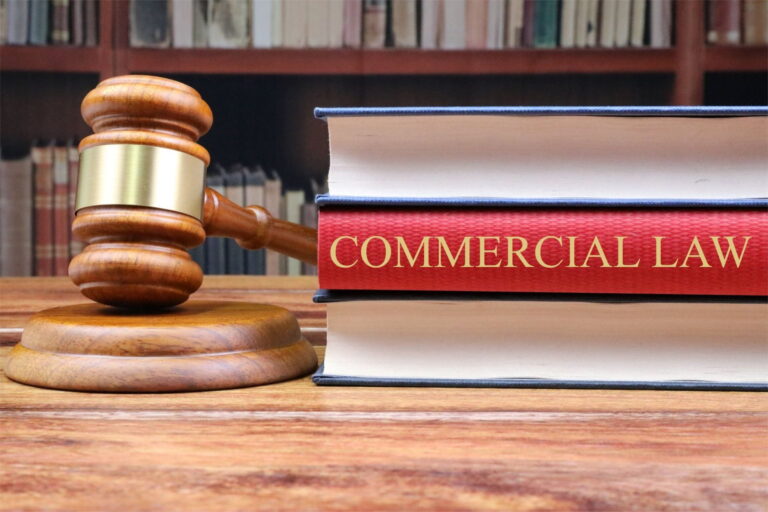Choosing the Best Commercial Lawyers in Melbourne: What to Look For
Choosing the right commercial lawyer is a crucial step for any business operating in Melbourne. Engaging the services of a lawyer who specializes in commercial law can save you time, money, and potential legal complications down the road. This article will guide you through understanding the role of commercial lawyers, identifying your legal needs, and the factors to consider when choosing the right lawyer for your business.
Understanding the Role of Commercial Lawyers
Commercial lawyers play a vital role in guiding businesses through the complex landscape of legal regulations, contracts, and disputes. They serve as advisors, ensuring that your business not only complies with the law but also optimizes its legal standing to facilitate growth and mitigate risks. Their expertise is particularly crucial in today’s fast-paced business environment, where the legal landscape can change rapidly, and the consequences of non-compliance can be severe.
From forming a business entity to navigating corporate governance, best commercial lawyers are involved in various aspects of business law. Their expertise can ensure that your contracts are legally binding and enforceable and that you have structures in place to protect your intellectual property. Additionally, they can provide insights into the implications of international trade laws, which is increasingly important as businesses expand their reach globally. This kind of foresight can be instrumental in avoiding legal pitfalls that may arise from cross-border transactions.
The Importance of Commercial Law
Commercial law serves as the backbone for the operation of businesses in a legal framework. It encompasses the laws related to business transactions, sales, and commercial paper, making it essential for any entrepreneur or business owner to understand. By adhering to commercial law, businesses can operate smoothly, avoid lawsuits, and maintain a good reputation within their industry. Understanding these laws not only helps in compliance but also in strategic planning, allowing businesses to leverage legal frameworks to their advantage.
Moreover, commercial law protects the rights and interests of all parties involved in a business transaction. This helps in building trust between business entities and their clients, which is vital for longevity and success. Therefore, understanding the significance of commercial law can profoundly influence a business’s bottom line. It also fosters a culture of ethical business practices, which can enhance customer loyalty and attract investors who are increasingly looking for socially responsible companies to support.
Key Responsibilities of Commercial Lawyers
Commercial lawyers have a wide array of responsibilities that are critical to the smooth operation of any business. Some of their key tasks include drafting and reviewing contracts, advising on compliance with regulations, and representing clients in negotiations and disputes. They are often the first line of defense in identifying potential legal issues before they escalate, which can save businesses significant time and resources.
They also assist in mergers and acquisitions, help with intellectual property rights, and provide guidance on corporate governance issues. By performing these tasks, commercial lawyers save businesses from misunderstandings that could lead to costly legal battles. Furthermore, they play a crucial role in risk management by advising on potential liabilities and developing strategies to minimize exposure. In an era where regulatory scrutiny is increasing, having a commercial lawyer on your team can be an invaluable asset for navigating complex legal landscapes and ensuring that your business remains compliant and competitive.
Identifying Your Legal Needs
Before you begin your search for a commercial lawyer, it’s essential to identify your specific legal needs. Understanding these requirements will not only streamline the selection process but will also ensure that you choose a lawyer who specializes in areas relevant to your business operations.
Assessing Your Business Requirements
Every business is unique, with its own set of challenges and requirements. Start by assessing what legal services will best support your business model. For instance, if your business heavily relies on intellectual property, seeking a lawyer with specialized expertise in that area is prudent.
Consider the stage of your business as well. A startup may require different legal services compared to an established corporation, such as advice on company formation or on compliance with local laws and regulations. Identifying these factors will help you determine the type of lawyer you need. Additionally, think about the industry in which you operate; certain sectors may have specific legal considerations, such as healthcare regulations for medical businesses or environmental laws for manufacturing firms. This nuanced understanding can guide you toward a lawyer who not only understands the law but also the intricacies of your industry.
Determining the Legal Services You Need
Once you have assessed your business needs, the next step is to outline the specific legal services you require. This could range from contract drafting and review to litigation and regulatory compliance.
- Contract writing and negotiation
- Dispute resolution and litigation
- Intellectual property protection
- Corporate governance and compliance
- Mergers and acquisitions
By categorizing your needs, you will be better equipped to find a lawyer who meets those specific requirements, ultimately leading to a more beneficial partnership. Furthermore, consider the potential for future legal needs as your business grows. For example, if you anticipate expanding into new markets or launching new products, it may be wise to engage a lawyer who has experience in international trade laws or product liability. This proactive approach can save you time and resources down the line, ensuring that you are prepared for the evolving landscape of your business.
Factors to Consider When Choosing a Commercial Lawyer
While identifying your legal needs is crucial, there are several other factors to consider to ensure you select the best commercial lawyer for your business. These factors can significantly impact your experience and the effectiveness of the legal representation you receive.
Experience and Expertise
Experience is arguably one of the most important factors to consider when selecting a commercial lawyer. A lawyer with a proven track record in handling cases similar to yours will likely be more adept at navigating the complexities of your unique situation.
Check the lawyer’s background, including their years of practice, areas of specialization, and past client testimonials. Direct experience in dealing with the types of legal matters you anticipate will instill confidence in their ability to represent your interests effectively. Additionally, consider whether the lawyer has experience in your specific industry, as this can provide an added layer of insight into the nuances and regulations that may affect your business operations.

Reputation and Reviews
It’s essential to gauge the reputation of a potential lawyer or law firm before making a commitment. Online reviews, referrals from other business owners, and peer recommendations can provide valuable insights into the minds of previous clients.
A lawyer with a strong reputation in the community will not only offer solid legal representation but will also likely have established relationships with local businesses, courts, and regulatory bodies. These connections can be advantageous in expediting processes and negotiating favorable terms on behalf of your business. Furthermore, a well-regarded lawyer may also have a network of professionals, such as accountants and consultants, that can be beneficial for your business needs.
Communication and Responsiveness
Effective communication is vital for a successful lawyer-client relationship. Gauge how responsive potential lawyers are during your initial interactions. A lawyer who is prompt and clear in their communication demonstrates their commitment to making clients feel valued and understood.
During your consultations, assess whether the lawyer takes the time to address your questions and concerns thoroughly. Good communication will ensure that you remain informed throughout your legal matters, providing peace of mind as your business navigates complex legal challenges. Moreover, consider how the lawyer prefers to communicate—whether through emails, phone calls, or in-person meetings—as this can affect your overall experience. A lawyer who is adaptable and willing to meet your communication preferences can make a significant difference in how smoothly your legal processes unfold.
The Selection Process
Once you have considered these factors, it’s time to embark on the selection process. This stage involves conducting initial consultations, comparing potential lawyers, and ultimately choosing the right one for your business needs.
Initial Consultation
The initial consultation is your opportunity to discuss your needs and evaluate how well a lawyer understands your business. Prepare questions in advance to gauge their expertise and approach. Pay attention to how they propose to tackle your situation and their suggested course of action.
This meeting is also a fantastic opportunity to assess their communication style. You want a lawyer who not only offers great advice but also makes you feel comfortable throughout the process. Consider asking about their previous experiences with businesses similar to yours, as this can provide insight into their familiarity with your industry’s specific legal challenges. Additionally, inquire about their availability and responsiveness, as these factors can significantly impact your working relationship.
Comparing and Contrasting Potential Lawyers
After meeting with a few candidates, take the time to compare and contrast their experience, services, and cost structures. Look for pros and cons based on your discussions during initial consultations.
Consider creating a weighted evaluation system based on the factors that matter most to your business, ranging from expertise in your area of need to the quality of their communication. This structured approach will help in making a more informed choice. Furthermore, don’t hesitate to reach out for references or testimonials from their previous clients. This can provide valuable insights into their reliability and effectiveness. Additionally, consider their approach to ongoing education and staying updated on legal changes, as this reflects their commitment to providing informed and relevant advice in a constantly evolving legal landscape.
Making the Final Decision
After thorough consideration and comparison, you will need to make your final decision. This choice should reflect not only your business needs but also the level of trust and comfort you have with the lawyer.
Evaluating the Costs
Legal services can vary widely in cost, so it’s vital to understand the pricing structures employed by potential lawyers. Discuss fees upfront during consultations to avoid any surprises down the line.
Consider whether the lawyer offers flat fees or hourly rates and what specific services are included in those fees. Budgeting for legal expenses is crucial for any business, so ensure the costs align with your financial plans.

Trusting Your Instincts
Finally, after evaluating all the above factors, trust your instincts. The right lawyer should provide not only expertise but also a sense of comfort and trust. A lawyer-client relationship is critical, so finding someone you can communicate with openly and who understands your business goals is essential for long-term success.
In summary, choosing the best commercial lawyer in Melbourne involves several steps and considerations. By understanding the role of commercial lawyers, identifying your specific legal needs, and evaluating potential candidates based on experience, reputation, communication, and trust, you can make a well-informed decision that will benefit your business for years to come.
Related : How Commercial Lawyers in Sydney Can Protect Your Business Interests






